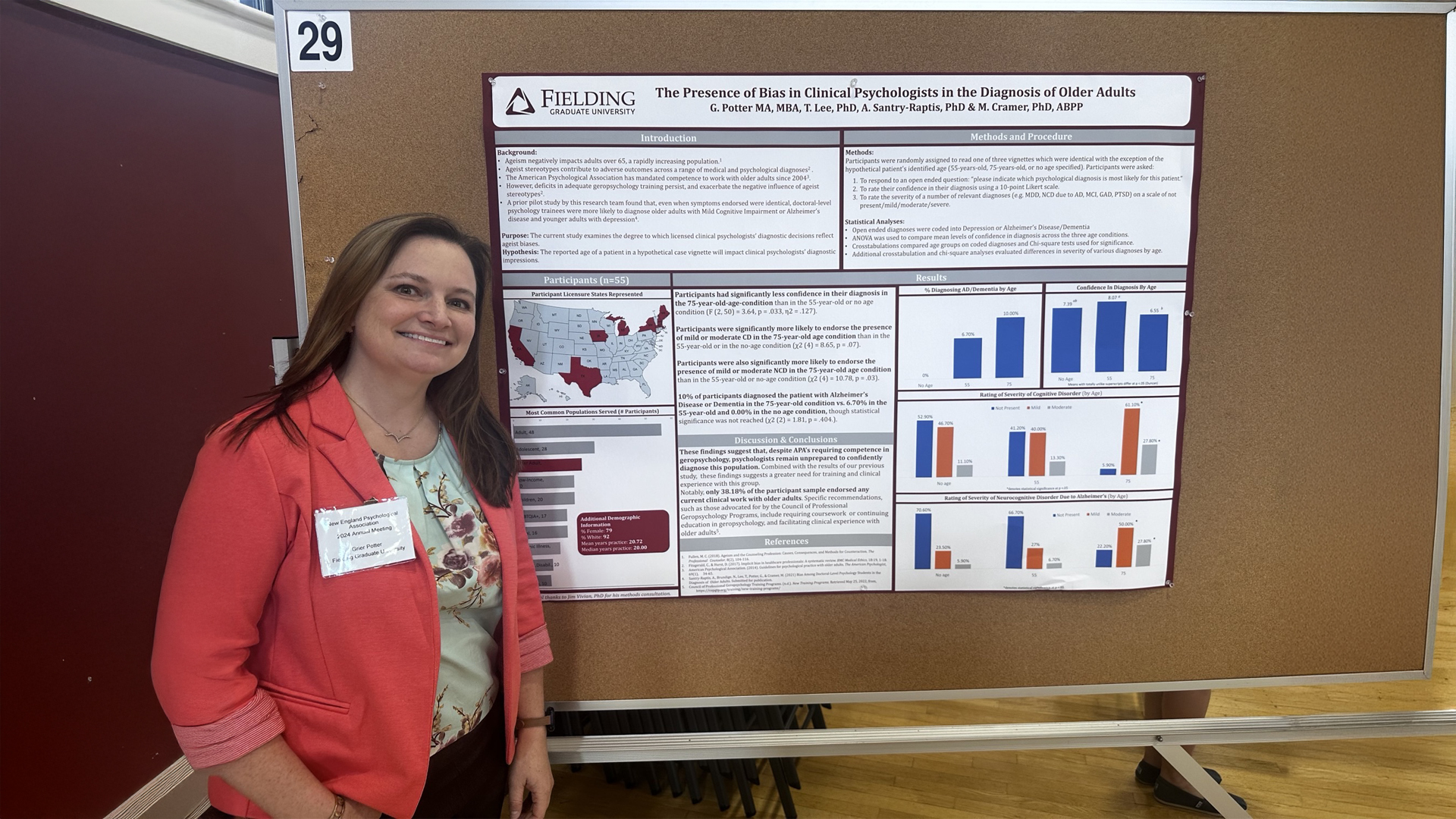A group of 10 Media Psychology faculty and students from Fielding Graduate University spent the last six months participating in a worldwide exercise aimed at degrading and countering terrorist messaging. The project was initiated by the U.S. Department of Defense Global Operations and involved academic, research, and public agencies from around the globe. The initial focus was on the impact of narrative psychology in Iraq, Syria, and North Africa.

Fielding joined the US Department of Defense, Special Operations Command, Joint Chiefs of Staff, Homeland Security, and other agencies.
“I’d like to commend the outstanding work done by students and faculty members from Fielding Graduate University,” wrote Department of Defense (DoD) Joint Staff Branch Chief Dr. Hriar Cabayan in a memorandum following the exercise. ”The expertise, insights, and guidance provided by the Fielding team … was invaluable and the simulation would not have been successful without it.”
They weren’t the only ones who benefitted.
“It was an incredible experience,” says Media Psychology Program Director Jerri Lynn Hogg, who participated with PhD faculty Garry Hare, Pam Rutledge, and Dan Sewell, and MA faculty Linda Durnell, Anita Clark and Kelley Micuda, as well as recent program graduate Rafael Linera, PhD. “We had the opportunity to use models and theories we have developed and apply them in a practical situation in the simulation.”
Fielding teamed with Military Intelligence Special Operations to create and simulate messaging that would accomplish these four goals:
- Reject Da’esh control and influence in towns/villages in Western Anbar
- Support a popular revolt/uprising in Mosul against the Da’esh occupation
- Support Sunni Arab tribal mobilization efforts in Ninewa Province
- Support counter-messaging campaigns in North Africa and respond to incidents and social media messages recruiting foreign fighters and radicalizing individuals to violence
For more than three months leading up to the exercise, the Media Psychology team had bi-weekly expert briefings on terrorism, culture and the politics of the region. Then, during the week of the real-time simulation, including over 90 participants in seven countries, they created audio, video, and graphic media and executed messages to imams, tribal leaders, and even ISIL supporters and recent defectors. The impact of this messaging was assessed as a guide for future narrative training and development.
“This gave the DoD and other agencies the opportunity to experiment with messaging and see what impact it had, to test the assumptions they’ve been going on for years,” says Garry Hare. It was great for Fielding students, too—one of whom is writing a dissertation on how ISIL uses the media to brand itself.
“As propagandists go, ISIL is very good,” Hare says. “We’d send a visual message, and they’d turn it around and send it back out with a different, pro-ISIL caption! This suggests a different strategy for social media in the future.”
The exercise is leading the Media Psychology program to create more student workshops on applying neuroscience tools to narrative creation, and using software to profile audiences. And ultimately, it should help the DoD define the best training and development to craft effective, real time anti-terrorism messaging.
“Terrorism isn’t going to go away. It’s an unfortunate world condition,” Hare says. “So can we come up with a general framework for narrative in conflict environments? If through our efforts, we save one person’s life, then it’s worth doing. The whole idea is to replace violence with narrative.”
Join Over 7,500 Fielding Alumni Located Around The World!
Change the world. Start with yours.™






Get Social